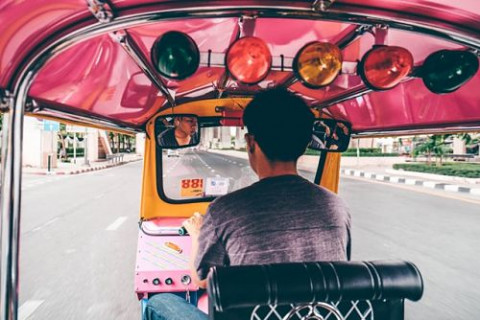What Cultural Differences Can You Expect When Moving to Thailand?
Thailand is a wonderfully hospitable country for those relocating there on expatriate assignments.
If you’re to make the most of your experience in this beautiful country however, it’s essential that you go prepared so that you can build productive relationships with the Thai people and make the best impression possible.
Below we have listed some of the key cultural differences that Western expats will encounter when moving to Thailand.
For optimum preparation, however, enrol in our great online Thai cultural training course which equips relocating expatriates with everything they need to know to navigate Thai culture effectively.
1. Face Culture
Thailand is a ‘face’ culture which makes individual reputation and social standing important.
It’s essential when building intercultural relationships within face cultures that you bear the social standing of your counterpart in mind at all times.
Face can be ‘given’ or ‘lost’. To criticise or challenge someone Thai in front of others, will cause them to ‘lose’ face which will lead to others viewing you negatively and may well impact your relationships – even if you have done so inadvertently. Face should be ‘given’ where possible. This means showing the right levels of respect to people who are more senior to you and, perhaps, praising people in front of their managers or complimenting people on their achievements.
You should also bear your own sense of face in mind when you are in Thailand. This means dressing well, staying in nice accommodation and showing good manners at all times. Failing to think about the image you present may well cause you, personally, to lose face; something which may well impact the esteem in which your Thai counterparts hold you.
2. Hierarchy
Thailand has a fairly hierarchical culture which means that Thais tend to know their place within the business and social setting.
They show respect to those who are more senior or older than them by bowing when greeting and showing deference when communicating. They are unlikely, for example, to interrupt or challenge and will typically carry your directions as required.
It’s important that you too show respect when you are in Thailand if you are to build positive intercultural relationships. If someone is older than you or more senior to you in the workplace, then show them respect by greeting them before those less senior and showing deference where possible.
The ultimate position in Thai hierarchy is occupied by the King. The King is an important part of Thai culture and he accorded considerable respect. Never, under any circumstances whatsoever, criticise or disrespect any member of the royal family. Selfies next to public photos of the King are a big no-no and, even money should be treated with care as it depicts images of the King. Don’t, for example, keep it in your shoe for safekeeping! Those caught criticising the King can face three to fifteen years imprisonment for each insult caused. Take for example, a 34-year-old Thai man who was recently sentenced to 35 years in prison for posting a number of insults on Facebook.
3. Harmony
Rooted in the Buddhist faith, harmony is important in Thai culture.
As such, you will see that Thais smile even if they are upset and that they rarely raise their voices. If you become angry when you are in Thailand, it will not get you anywhere. At the very least, your behaviour will lead to your Thai counterparts losing respect for you. The best way to deal with frustrations in Thailand is by keeping a stoic face or smiling. Talk calmly, without assigning blame and, no doubt, the situation will be managed far more effectively.
With the Buddhist faith in mind, it’s important that you always show respect to the religion. Posing with a Buddha statue for selfies would be considered disrespectful, as would buying them for decoration. In fact, Buddha statues are routinely confiscated from tourists as they leave the country. Be aware also, that you should not touch monks, that you should give your seat up for them when on public transport and that you should never touch the head of a Thai person as the head is considered the most sacred part of the body in the Buddhist religion.
4. Group
The role of the group is another important part of Thai culture.
In many countries in the West, individualism plays an important part in the culture, however, this is not the case in Thailand and Thais routinely put their own individual needs aside to serve the group.
Be aware therefore, that although you may be dealing with an individual in Thailand, they will also be part of many groups. As such, if you cause a Thai person to lose face, (depending on the situation), you may also be causing their whole family or team to lose face.
You should also be prepared that group and hierarchy go hand in hand which may well slow things down. For example, an individual may need to reach consensus about a subject with their group, before having it sanctified by the group leader. Don’t expect things to happen too quickly in Thailand!
Photo by Hanny Naibaho on Unsplash
Related Posts
By accepting you will be accessing a service provided by a third-party external to https://www.commisceo-global.com/

 +44 0330 027 0207 or +1 (818) 532-6908
+44 0330 027 0207 or +1 (818) 532-6908
